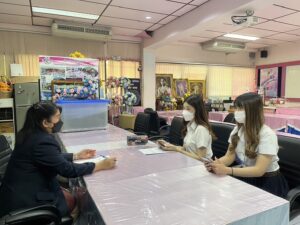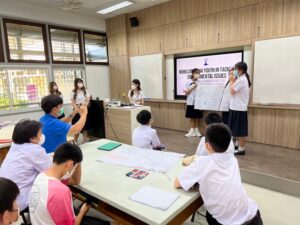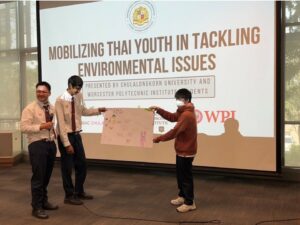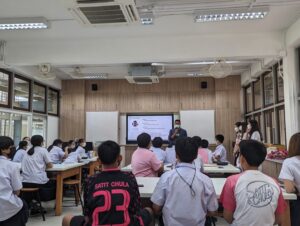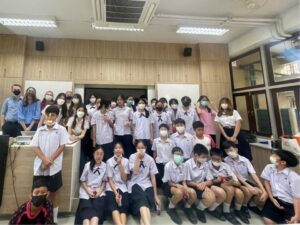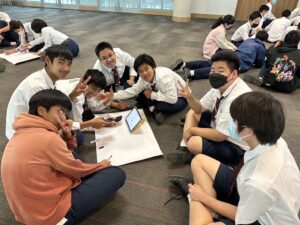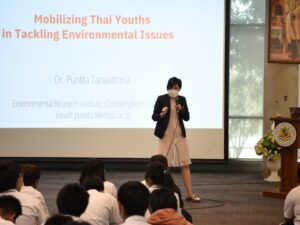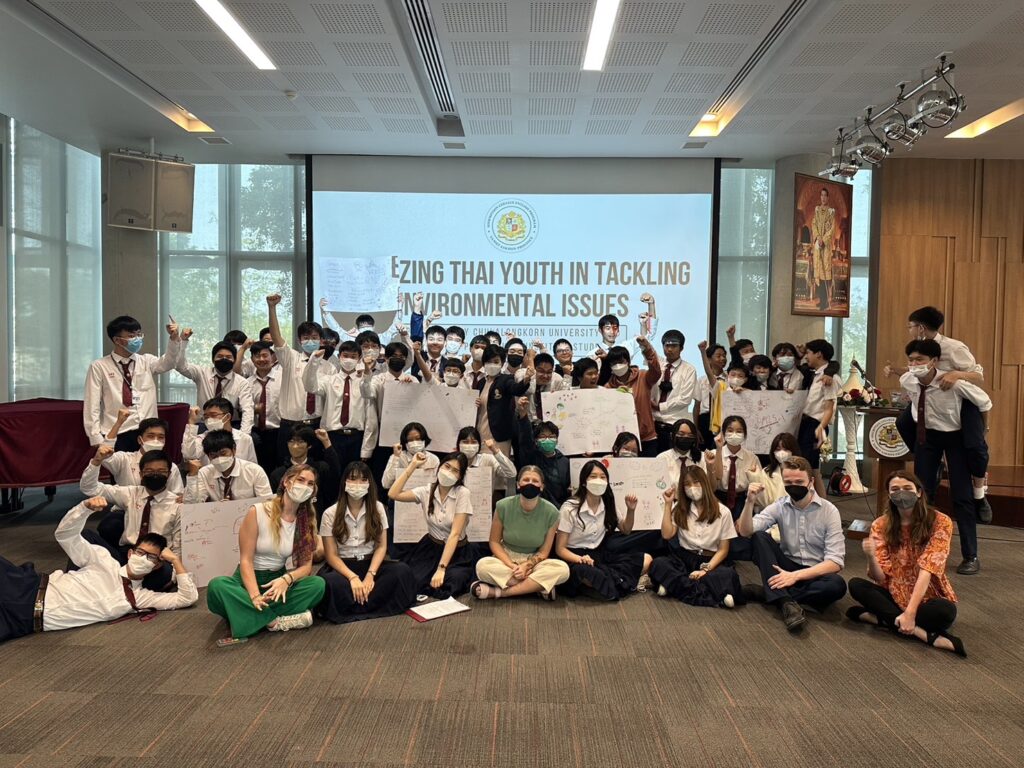In recent years, the aggressive progression of climate change has caught the attention and concern of the public worldwide. Thailand Environment Institute (TEI) sought assistance from a team of Chulalongkorn University and Worcester Polytechnic Institute students to develop a strategy for youth engagement and address the effectiveness of their current efforts. TEI’s social media pages were not gaining adequate traction, and their workshop approach could be improved to better engage students. To address this, the most effective engagement methods were determined by surveying students and interviewing teachers to understand how students are engaged. Lower secondary students and upper secondary students from 7 schools were visited around Bangkok Metropolitan region, Thailand to distribute surveys and hold teacher interviews. The effectiveness of TEI’s current social media approach was determined by analyzing the engagement numbers on their profiles. The effectiveness of TEI’s current workshop approach was determined by hosting two, using an outline provided by them. Pre- and post-surveys were distributed to gain student insight, and observations were made to gauge engagement throughout the events. It was found that the most effective engagement methods were posting on TEI’s platforms, such as Facebook, Twitter and Youtube that host short videos, creating hands-on activities for youth, and bringing them outdoors to connect with their environment. Thailand Environment Institute sponsored this research and are encouraged to implement our recommendations in order to engage youth in environmental issues, and ultimately motivate them to make a change.
Gallery
